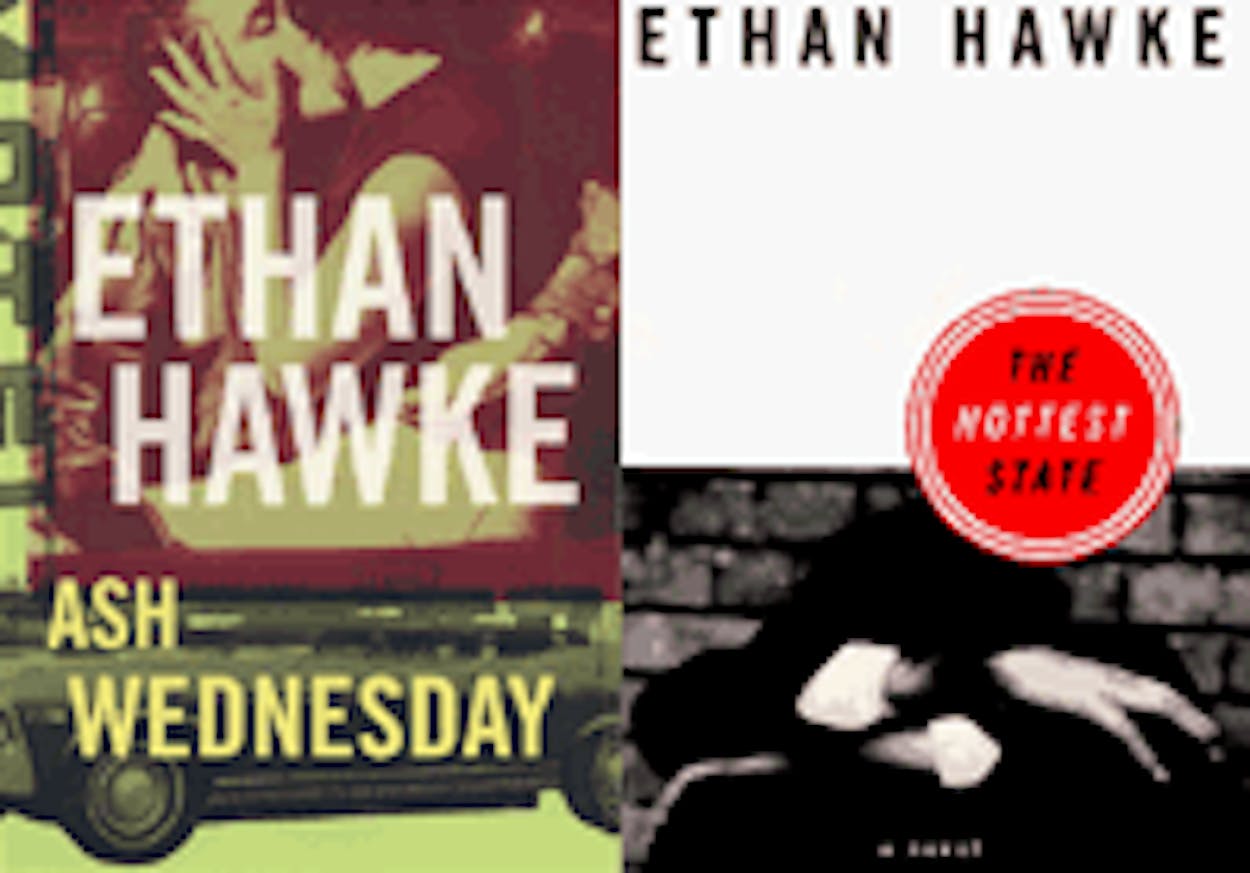Both of your novels, The Hottest State and now Ash Wednesday, are somewhat biographical, and both have protagonists who are trying to get to Texas. Why?
Someone once said, “If you leave Texas too young, it will haunt you forever.” There’s something grandiose and mythic about Texas, especially if you wind up on the East Coast. There’s a reason Kennedy was shot there; there’s a reason Waco happened there. My parents divorced when I was three. My father stayed in Texas, and I missed him. Texas was where I wanted to be, all the time, so it took on a larger, metaphoric meaning for me.
Rumor has it that you might be playing Travis in Disney’s remake of The Alamo.
Yeah, Travis is my character. As someone who grew up with fantasies about the Alamo, the idea that I’m going to get to play Travis—don’t tell anyone, but I would do it for free. I would pay to do it. At the Oscars, I cornered Ron Howard [at the time, the movie’s director] and I told him that he had to cast me. There was no way that I could be alive when he was filming a remake of The Alamo and not be in it. The script very skillfully navigates the Mexican point of view and the settlers’ point of view so that it becomes reminiscent of Israel-Palestine, or whatever you want. No one was a hundred percent right, and both sides behaved horribly and beautifully.
Why have you chosen to live in New York rather than Los Angeles?
L.A. is a wonderful city, but it’s a really hard place to be a young actor. You’re very aware of people’s assessment of you as a product or as merchandise. Maybe some people aren’t as susceptible to it as I am, but I just felt awful there. What I love about Austin is that you meet all these amazing artists, and their mind-set is not “making it big.” That’s why I love going down there, and I think that’s why [film director] Rick Linklater stays so true to himself. It’s exhausting to be around people who are always trying to hustle you. It’s just exhausting. It takes the fun out of it all.
You’ve said that you think Americans have a complicated relationship with celebrity.
We fetishize celebrities. Whenever you put somebody on a pedestal like that, you also resent them. You do that to a new girlfriend: “She’s amazing! She’s so beautiful!” turns into “She makes me feel bad about myself. I hate her.” There’s a certain bit of that. It’s misplaced awe. Sometimes I’ll be on a set around somebody really famous, like Tom Hanks, and I’ll start thinking, “Imagine if everybody in the world treated everybody else as nice as everybody treats Tom Hanks.”
How are you enjoying family life?
I love my kids so much. It’s so wonderful to have something that’s more important in life than how my film does. Before I got married [to Uma Thurman], I was incredibly self-involved. But the act of loving somebody else brings you out of yourself. Uma is starting work on Quentin Tarantino’s new movie. It’s a Hong Kong female revenge flick, and Uma plays a woman scorned. And hell hath no fury like her.








